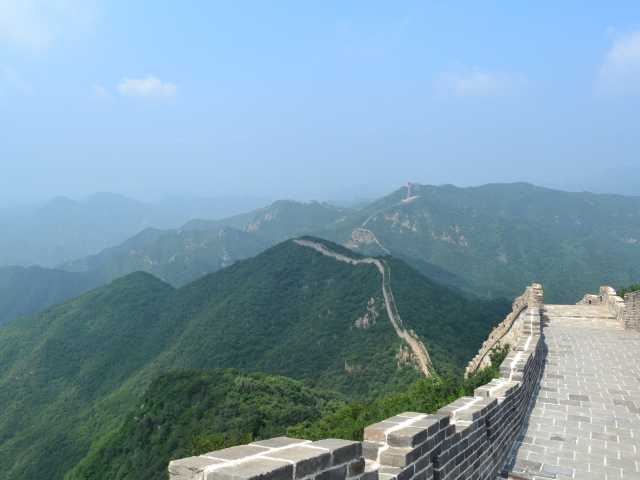The future of a healthier Beijing

As part of the Netherlands Asia Honours Summer School (NAHSS), a group of 30 students from all over the country including myself took off to Beijing, the capital of China. Before departure I didn’t have many expectations, only a few. Some good and some bad, whereas some of them turned out to be true.
On June 29 we arrived at Beijing airport. I still remember the warm blanket of air embracing me when stepping outside for the first time. The strong smell of an ashtray combined with a grey fog were the first things that I noticed. Now, a few weeks later, I barely even the notice the smog anymore. Only after a heavy rainy day I was very surprised to see the blue sky again.
Even though the smog is still a problem in Beijing, I can see that there is a change in terms of sustainability. What really surprised me is that there are rental bikes everywhere you look. With a simple application on your phone, you can scan the QR-code and unlock the bike. Also lots of people use public transportation or electrical motorcycles. In that way their technological advancements surpass ours.
Even though the smog seems to spread throughout the whole city, I managed to escape from it without traveling too far. Around an hour and a half drive from our campus there is a place in the mountains almost no tourists or citizens know about. There, in the mountains, me and a few others did a homestay. We stayed in a traditional Chinese house, where we were treated very kindly by the family. The house was located near the unrestored part of the great wall. We spend around 4 hours hiking in the burning sun, exploring the mountains and unrestored parts of the great wall. The view was really amazing, and the air was clean. Only then I realized the mesmerizing beauty of this country. I felt like I was on top of the world. This also showed that they are not that far away from a cleaner, healthier city.
For my project for Friesland Campina I went to the Temple of Heaven where we asked elderly to fill in a survey. Because the topic of the NAHSS this year is healthy ageing, it was interesting to see how elderly in China behave, in terms of social interaction, sports and food consumption. When I arrived at the park near the Temple of Heaven, there were elderly everywhere. Some people were dancing, or doing Tai-Chi. Others were singing traditional Chinese songs, or playing some kind ball game. What was interesting to see is that there were lots of exercise machines. Therefore you won’t need a gym prescription, but you can just go to the park. Remarkable is the flexibility of these old people and their stamina. In many ways it exceeded mine. It was very nice to see that there were so many elderly playing sports together and having fun. This way the social isolation rate amongst elderly is probably lower than in the Netherlands for example. They looked happy and healthy.
I think the NAHSS creates a better understanding of the Chinese culture. Because of our project for Friesland Campina, we really came into contact with locals which I wouldn’t have met otherwise. Besides the contact with locals, I also interacted with Chinese students from Peking University where I followed two courses. Mainly the students could talk some English, which led to some interesting conversations. Also the company visits that we did lead to a better understanding of the way the Chinese do business, which is mainly based on trust and lots of socializing. Because of the NAHSS I have experienced China not just as a tourist, but way more than that. I’m very glad that I was given the opportunity to learn so much about this vibrant country.
In class my teacher had a saying: “Tell me, I forget. Show me, I’ll remember. Involve me, I understand.”
I’ve got the feeling that because of the NAHSS I’ve become to understand more of the Chinese culture than before.

